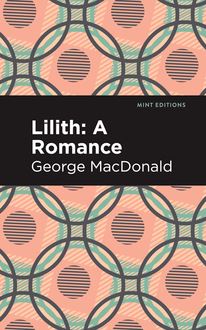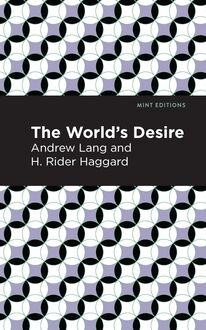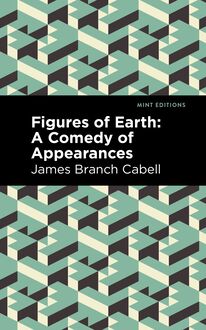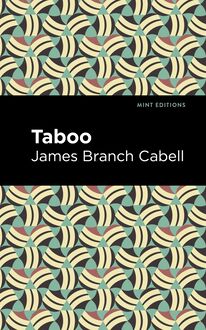-
 Univers
Univers
-
 Ebooks
Ebooks
-
 Livres audio
Livres audio
-
 Presse
Presse
-
 Podcasts
Podcasts
-
 BD
BD
-
 Documents
Documents
-
- Cours
- Révisions
- Ressources pédagogiques
- Sciences de l’éducation
- Manuels scolaires
- Langues
- Travaux de classe
- Annales de BEP
- Etudes supérieures
- Maternelle et primaire
- Fiches de lecture
- Orientation scolaire
- Méthodologie
- Corrigés de devoir
- Annales d’examens et concours
- Annales du bac
- Annales du brevet
- Rapports de stage
La lecture à portée de main
Vous pourrez modifier la taille du texte de cet ouvrage
Découvre YouScribe en t'inscrivant gratuitement
Je m'inscrisDécouvre YouScribe en t'inscrivant gratuitement
Je m'inscrisEn savoir plus
Vous pourrez modifier la taille du texte de cet ouvrage
En savoir plus

Description
A Certain Hour (1922) is a collection of stories by James Branch Cabell. Recreating the lives of some of history’s most celebrated poets, A Certain Hour is a relative outlier among Cabell’s body of work, and is included in a series of novels, essays, and poems known as the Biography of the Life of Manuel. “Indisputably the most striking defect of this modern American literature is the fact that the production of anything at all resembling literature is scarcely anywhere apparent. Innumerable printing-presses, instead, are turning out a vast quantity of reading-matter, the candidly recognized purpose of which is to kill time, and which—it has been asserted, though perhaps too sweepingly—ought not to be vended over book-counters, but rather in drugstores along with the other narcotics.” Moving away from his usual setting of 13th century France, Cabell begins his collection with an impassioned essay decrying the state of American literature in the early twentieth century. Interested in the nature of literary genius, he imagines the lives of such poets as Robert Herrick and Alexander Pope, whose wit and wisdom remain essential centuries after their deaths. A Certain Hour is a captivating collection of tales from a historical period not so different from our own. Cabell’s work has long been described as escapist, his novels and stories derided as fantastic and obsessive recreations of a world lost long ago. To read A Certain Hour, however, is to understand that the issues therein—the struggle for power, the unspoken distance between men and women—were vastly important not only at the time of its publication, but in our own, divisive world. With a beautifully designed cover and professionally typeset manuscript, this edition of James Branch Cabell’s A Certain Hour is a classic of fantasy and romance reimagined for modern readers.
Sujets
Informations
| Publié par | Mint Editions |
| Date de parution | 03 août 2021 |
| Nombre de lectures | 0 |
| EAN13 | 9781513297248 |
| Langue | English |
Informations légales : prix de location à la page 0,0500€. Cette information est donnée uniquement à titre indicatif conformément à la législation en vigueur.
Extrait
The Certain Hour
James Branch Cabell
The Certain Hour was first published in 1916.
This edition published by Mint Editions 2021.
ISBN 9781513295749 | E-ISBN 9781513297248
Published by Mint Editions®
minteditionbooks.com
Publishing Director: Jennifer Newens
Design & Production: Rachel Lopez Metzger
Project Manager: Micaela Clark
Typesetting: Westchester Publishing Services
C ONTENTS B ALLAD OF THE D OUBLE- S OUL A UCTORIAL I NDUCTION B ELHS C AVALIERS B ALTHAZAR’S D AUGHTER J UDITH’S C REED C ONCERNING C ORINNA O LIVIA’S P OTTAGE A B ROWN W OMAN P RO H ONORIA T HE I RRESISTIBLE O GLE A P RINCESS OF G RUB S TREET T HE L ADY OF A LL O UR D REAMS B ALLAD OF P LAGIARY
B ALLAD OF THE D OUBLE- S OUL
“Les Dieux, qui trop aiment ses faceties cruelles”
— P AUL V ERVILLE
In the beginning the Gods made man, and fashioned the sky and the sea,
And the earth’s fair face for man’s dwelling-place, and this was the Gods’ decree:—
“Lo, We have given to man five wits: he discerneth folly and sin;
He is swift to deride all the world outside, and blind to the world within:
“So that man may make sport and amuse Us, in battling for phrases or pelf,
Now that each may know what forebodeth woe to his neighbor, and not to himself.”
Yet some have the Gods forgotten,—or is it that subtler mirth
The Gods extort of a certain sort of folk that cumber the earth?
For this is the song of the double-soul, distortedly two in one,—
Of the wearied eyes that still behold the fruit ere the seed be sown,
And derive affright for the nearing night from the light of the noontide sun.
For one that with hope in the morning set forth, and knew never a fear,
They have linked with another whom omens bother; and he whispers in one’s ear.
And one is fain to be climbing where only angels have trod,
But is fettered and tied to another’s side who fears that it might look odd.
And one would worship a woman whom all perfections dower,
But the other smiles at transparent wiles; and he quotes from Schopenhauer.
Thus two by two we wrangle and blunder about the earth,
And that body we share we may not spare; but the Gods have need of mirth.
So this is the song of the double-soul, distortedly two in one.—
Of the wearied eyes that still behold the fruit ere the seed be sown,
And derive affright for the nearing night from the light of the noontide sun.
AUCTORIAL INDUCTION
“These questions, so long as they remain with the Muses, may very well be unaccompanied with severity, for where there is no other end of contemplation and inquiry but that of pastime alone, the understanding is not oppressed; but after the Muses have given over their riddles to Sphinx,—that is, to practise, which urges and impels to action, choice and determination,—then it is that they become torturing, severe and trying.”
From the dawn of the day to the dusk he toiled,
Shaping fanciful playthings, with tireless hands,—
Useless trumpery toys; and, with vaulting heart,
Gave them unto all peoples, who mocked at him,
Trampled on them, and soiled them, and went their way.
Then he toiled from the morn to the dusk again,
Gave his gimcracks to peoples who mocked at him,
Trampled on them, deriding, and went their way.
Thus he labors, and loudly they jeer at him;—
That is, when they remember he still exists.
Who , you ask, is this fellow ?—What matter names?
He is only a scribbler who is content.
— F ELIX K ENNASTON . The Toy-Maker
A UCTORIAL I NDUCTION
W HICH ( A FTER S OME B RIEF D ISCOURSE OF F IRES AND F RYING- P ANS) E LUCIDATES THE I NEXPEDIENCY OF P UBLISHING THIS B OOK, AS W ELL AS THE N ECESSITY OF W RITING I T: A ND T HENCE P ASSES TO A M ODEST D EFENSE OF M ORE V ITAL T HEMES .
T he desire to write perfectly of beautiful happenings is, as the saying runs, old as the hills—and as immortal. Questionless, there was many a serviceable brick wasted in Nineveh because finicky persons must needs be deleting here and there a phrase in favor of its cuneatic synonym; and it is not improbable that when the outworn sun expires in clinkers its final ray will gild such zealots tinkering with their “style.” Some few there must be in every age and every land of whom life claims nothing very insistently save that they write perfectly of beautiful happenings.
Yet, that the work of a man of letters is almost always a congenial product of his day and environment, is a contention as lacking in novelty as it is in the need of any upholding here. Nor is the rationality of that axiom far to seek; for a man of genuine literary genius, since he possesses a temperament whose susceptibilities are of wider area than those of any other, is inevitably of all people the one most variously affected by his surroundings. And it is he, in consequence, who of all people most faithfully and compactly exhibits the impress of his times and his times’ tendencies, not merely in his writings—where it conceivably might be just predetermined affectation—but in his personality.
Such being the assumption upon which this volume is builded, it appears only equitable for the architect frankly to indicate his cornerstone. Hereinafter you have an attempt to depict a special temperament—one in essence “literary”—as very variously molded by diverse eras and as responding in proportion with its ability to the demands of a certain hour.
In proportion with its ability, be it repeated, since its ability is singularly hampered. For, apart from any ticklish temporal considerations, be it remembered, life is always claiming of this temperament’s possessor that he write perfectly of beautiful happenings.
To disregard this vital longing, and flatly to stifle the innate striving toward artistic creation, is to become (as with Wycherley and Sheridan) a man who waives, however laughingly, his sole apology for existence. The proceeding is paltry enough, in all conscience; and yet, upon the other side, there is much positive danger in giving to the instinct a loose rein. For in that event the familiar circumstances of sedate and wholesome living cannot but seem, like paintings viewed too near, to lose in gusto and winsomeness. Desire, perhaps a craving hunger, awakens for the impossible. No emotion, whatever be its sincerity, is endured without a side-glance toward its capabilities for being written about. The world, in short, inclines to appear an ill-lit mine, wherein one quarries gingerly amidst an abiding loneliness (as with Pope and Ufford and Sire Raimbaut)—and wherein one very often is allured into unsavory alleys (as with Herrick and Alessandro de Medici)—in search of that raw material which loving labor will transshape into comeliness.
Such, if it be allowed to shift the metaphor, are the treacherous by-paths of that admirably policed highway whereon the well-groomed and well-bitted Pegasi of Vanderhoffen and Charteris (in his later manner) trot stolidly and safely toward oblivion. And the result of wandering afield is of necessity a tragedy, in that the deviator’s life, if not as an artist’s quite certainly as a human being’s, must in the outcome be adjudged a failure.
Hereinafter, then, you have an attempt to depict a special temperament—one in essence “literary”—as very variously molded by diverse eras and as responding in proportion with its ability to the demands of a certain hour.
II
A ND TH IS MUCH SAID, IT is permissible to hope, at least, that here and there some reader may be found not wholly blind to this book’s goal, whatever be his opinion as to this book’s success in reaching it. Yet many honest souls there be among us average-novel-readers in whose eyes this volume must rest content to figure as a collection of short stories having naught in common beyond the feature that each deals with the affaires du coeur of a poet.
Such must always be the book’s interpretation by mental indolence. The fact is incontestable; and this fact in itself may be taken as sufficient to establish the inexpediency of publishing The Certain Hour . For that “people will not buy a volume of short stories” is notorious to all publishers. To offset the axiom there are no doubt incongruous phenomena— ranging from the continued popularity of the Bible to the present general esteem of Mr. Kipling, and embracing the rather unaccountable vogue of “O. Henry”;—but, none the less, the superstition has its force.
Here intervenes the multifariousness of man, pointed out somewhere by Mr. Gilbert Chesterton, which enables the individual to be at once a vegetarian, a golfer, a vestryman, a blond, a mammal, a Democrat, and an immortal spirit. As a rational person, one may debonairly consider The Certain Hour possesses as large license to look like a volume of short stories as, say, a backgammon-board has to its customary guise of a two-volume history; but as an average-novel-reader, one must vote otherwise. As an average-novel-reader, one must condemn the very book which, as a seasoned scribbler, one was moved to write through long consideration of the drama already suggested—that immemorial drama of the desire to write perfectly of beautiful happenings, and the obscure martyrdom to which this desire solicits its possessor.
Now, clearly, the struggle of a special temperament with a fixed force does not forthwith begin another story when the locale of combat shifts. The case is, rather, as when—with certainly an intervening change of apparel—Pompey fights Caesar at both Dyrrachium and Pharsalus, or as when General Grant successively encounters General Lee at the Wilderness, Spottsylvania, Cold Harbor and Appomattox. The combatants remain unchanged, the question at issue is the same, the tragedy has continuity. And even so, from the time of Sire Raimbaut to that of John Charteris has a special temperament heart-hungrily confronted an ageless problem: at what cost now, in this fleet hour of my vigor, may one write perfectly of beautiful happenings?
T HUS LOGIC URG ES, WITH PATHETIC fut
-
 Univers
Univers
-
 Ebooks
Ebooks
-
 Livres audio
Livres audio
-
 Presse
Presse
-
 Podcasts
Podcasts
-
 BD
BD
-
 Documents
Documents
-
Jeunesse
-
Littérature
-
Ressources professionnelles
-
Santé et bien-être
-
Savoirs
-
Education
-
Loisirs et hobbies
-
Art, musique et cinéma
-
Actualité et débat de société
-
Jeunesse
-
Littérature
-
Ressources professionnelles
-
Santé et bien-être
-
Savoirs
-
Education
-
Loisirs et hobbies
-
Art, musique et cinéma
-
Actualité et débat de société
-
Actualités
-
Lifestyle
-
Presse jeunesse
-
Presse professionnelle
-
Pratique
-
Presse sportive
-
Presse internationale
-
Culture & Médias
-
Action et Aventures
-
Science-fiction et Fantasy
-
Société
-
Jeunesse
-
Littérature
-
Ressources professionnelles
-
Santé et bien-être
-
Savoirs
-
Education
-
Loisirs et hobbies
-
Art, musique et cinéma
-
Actualité et débat de société
- Cours
- Révisions
- Ressources pédagogiques
- Sciences de l’éducation
- Manuels scolaires
- Langues
- Travaux de classe
- Annales de BEP
- Etudes supérieures
- Maternelle et primaire
- Fiches de lecture
- Orientation scolaire
- Méthodologie
- Corrigés de devoir
- Annales d’examens et concours
- Annales du bac
- Annales du brevet
- Rapports de stage




















